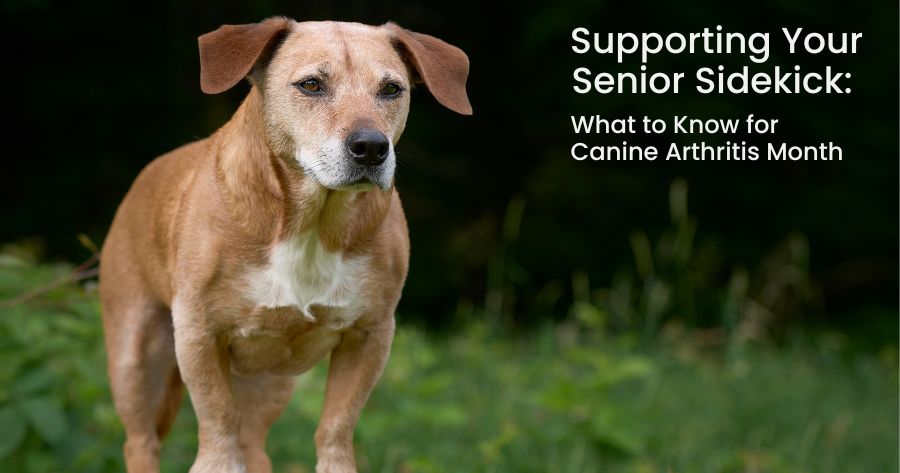
Just like people, dogs can develop arthritis as they age—especially larger breeds, overweight pets, or those with prior injuries. Canine Arthritis Month is the perfect time to raise awareness about this common condition and help our four-legged friends live more comfortable, active lives.
Canine arthritis, also known as osteoarthritis or degenerative joint disease, is a progressive condition that causes inflammation and pain in the joints. It typically affects older dogs, but younger pups aren’t immune—especially if they’ve had orthopedic injuries or underlying joint issues.
You might notice:
These signs can sneak up slowly, so it's easy to miss them or chalk them up to “just getting older.” But arthritis is not just a normal part of aging—it’s a medical condition that deserves attention and treatment.
In addition to treatments such as supplements, anti-inflammatories, and pain medications, we often recommend:
The good news? There are more treatment options than ever before and we’re excited to offer one of the newest advancements in arthritis care: Librela. Librela is a once-a-month injectable medication specifically designed to target the pain of osteoarthritis in dogs. It works by blocking a nerve growth factor (NGF), which plays a key role in transmitting pain signals. Many pet parents report seeing significant improvement in their dog’s mobility, mood, and overall comfort—even after just one injection. Unlike traditional NSAIDs (non-steroidal anti-inflammatory drugs), Librela is given by your veterinarian monthly and is an excellent option for dogs who can’t tolerate oral medications or have other health concerns.
Don’t wait until your dog starts limping. Regular checkups, a healthy diet, joint-supportive supplements, and maintaining a lean body condition can help delay or reduce arthritis symptoms.
Whether your dog is just beginning to slow down or showing more advanced signs of arthritis, early intervention makes a big difference. If you’ve noticed any changes in your pet’s mobility or behavior, contact your primary care veterinarian to discuss the best treatment options.


